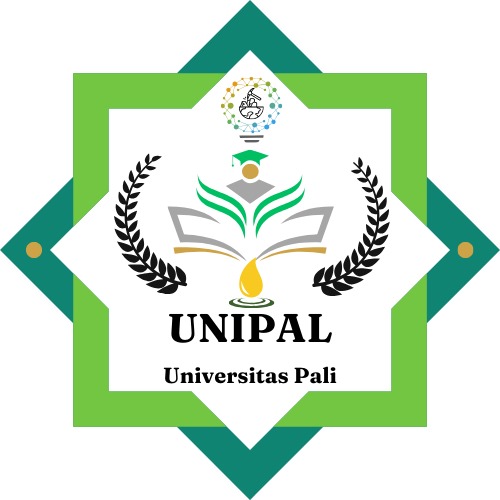Political Bureaucracy and Community Empowerment
A Study of Community Support for Sustainable Rural Tourism in Lombok
Keywords:
Rural Tourism, Community Empowerment, Political Bureaucracy, Local Governance, Sustainable DevelopmentAbstract
Purpose – This study aims to explore how political bureaucracy influences community support for sustainable rural tourism development in Lombok, Indonesia. Although rural tourism is often promoted as a tool for local empowerment and environmental preservation, its long-term success depends on how local communities perceive its benefits and how political structures facilitate or obstruct their engagement.
Design/methods/approach – A qualitative approach was employed using semi-structured interviews with key informants, including village leaders, community members, and local government officials. Thematic analysis was conducted to identify recurring patterns and themes related to perceived tourism benefits and bureaucratic involvement.
Findings – The study reveals that environmental benefits are more recognized and valued by local communities compared to economic and social gains, which are perceived as unevenly distributed and influenced by bureaucratic inefficiencies. Participants expressed skepticism towards local government initiatives due to limited transparency and top-down policy implementation. While political bureaucracy was found to have structural influence, its role in encouraging active community support remained weak.
Research implications/limitations – The findings are context-specific and may not be generalizable beyond the Lombok region. The study's reliance on interview data may also be influenced by respondents' personal biases and experiences. Nevertheless, it offers valuable insight into the interplay between perception, support, and governance in tourism development.
Originality/value – This research contributes to the limited literature on the role of political bureaucracy in rural tourism by presenting a grounded community perspective. It highlights the importance of inclusive governance and the need for more participatory and transparent bureaucratic practices to foster sustainable tourism initiatives.
References
Almeida‐García, F., Peláez‐Fernández, M. A., Vázquez, A., & Macías, R. C. (2016). Residents’ Perceptions of Tourism Development in Benalmádena (Spain). Tourism Management, 54, 259–274. https://doi.org/10.1016/j.tourman.2015.11.007
Amrullah, A., Amir, A. F., Jamal, S. A., Shahril, Z. R., & Som, A. P. M. (2024). From Perception to Support: The Role of Political Bureaucracy in Rural Tourism Development in Lombok, Indonesia. Planning Malaysia, 22. https://doi.org/10.21837/pm.v22i33.1561
Bonanza, O., Avenzora, R., Malihah, E., & Hermawan, R. (2023). Polarization of Government and NGO Orientation Towards Eco-Rural Tourism Development in Kerinci Region, Jambi Province, Indonesia. Komunitas International Journal of Indonesian Society and Culture, 15(1), 77–90. https://doi.org/10.15294/komunitas.v15i1.36464
Davardoust, S., & Karahan, F. (2021). Evaluation of Sustainable Rural Tourism. The Case of Uzundere District, Erzurum, Turkey. Sustainability, 13(18), 10218. https://doi.org/10.3390/su131810218
Hua, G., & Jordan, E. J. (2021). Social Exclusion and Conflict in a Rural Tourism Community: A Case Study From Likeng Village, China. Tourist Studies, 22(1), 42–60. https://doi.org/10.1177/14687976211039067
Hutsaliuk, О., Bondar, I., Sereda, N., Babych, O., & Shchoholieva, I. (2021). Organization and Management of the Development of Ecological Tourism in a Circular Economy. E3s Web of Conferences, 255, 01026. https://doi.org/10.1051/e3sconf/202125501026
Koshim, A., Sergeyeva, A., Kakimzhanov, Y., Aktymbayeva, A., Sakypbek, M., & Sapiyeva, A. (2023). Sustainable Development of Ecotourism in “Altynemel” National Park, Kazakhstan: Assessment Through the Perception of Residents. Sustainability, 15(11), 8496. https://doi.org/10.3390/su15118496
Mikhaylova, A. A., Wendt, J. A., Hvaley, D., Bógdał-Brzezińska, A., & Mikhaylov, A. S. (2022). Impact of Cross-Border Tourism on the Sustainable Development of Rural Areas in the Russian–Polish and Russian–Kazakh Borderlands. Sustainability, 14(4), 2409. https://doi.org/10.3390/su14042409
Muhtasom, A., & Ab, A. (2019). Kahayya Village as a Priority Destination for Rural Tourism Development Policy in Bulukumba Regency. Jurnal Ad Ministrare, 6(1), 1. https://doi.org/10.26858/ja.v6i1.9432
Song, H. (2015). Correlation Analysis Between Rural Tourism and Agricultural Food Marketing. Advance Journal of Food Science and Technology, 7(10), 798–803. https://doi.org/10.19026/ajfst.7.1741
Tola, A., Minga, A., & Muça, E. (2024). Rural Tourism: Nurturing Prosperity and Community Resilience. Edelweiss Applied Science and Technology, 8(3), 279–289. https://doi.org/10.55214/25768484.v8i3.968
Xu, H. S. J. (2021). Regional Competition and Sustainable Development of Tourism Industry in the Synthesis of Game Theory. Converter, 416–425. https://doi.org/10.17762/converter.193
Yachin, J. M., & İoannides, D. (2020). “Making Do” in Rural Tourism: The Resourcing Behaviour of Tourism Micro-Firms. Journal of Sustainable Tourism, 28(7), 1003–1021. https://doi.org/10.1080/09669582.2020.1715993
Downloads
Published
How to Cite
Issue
Section
License
Copyright (c) 2024 Damu et al

This work is licensed under a Creative Commons Attribution-ShareAlike 4.0 International License.















